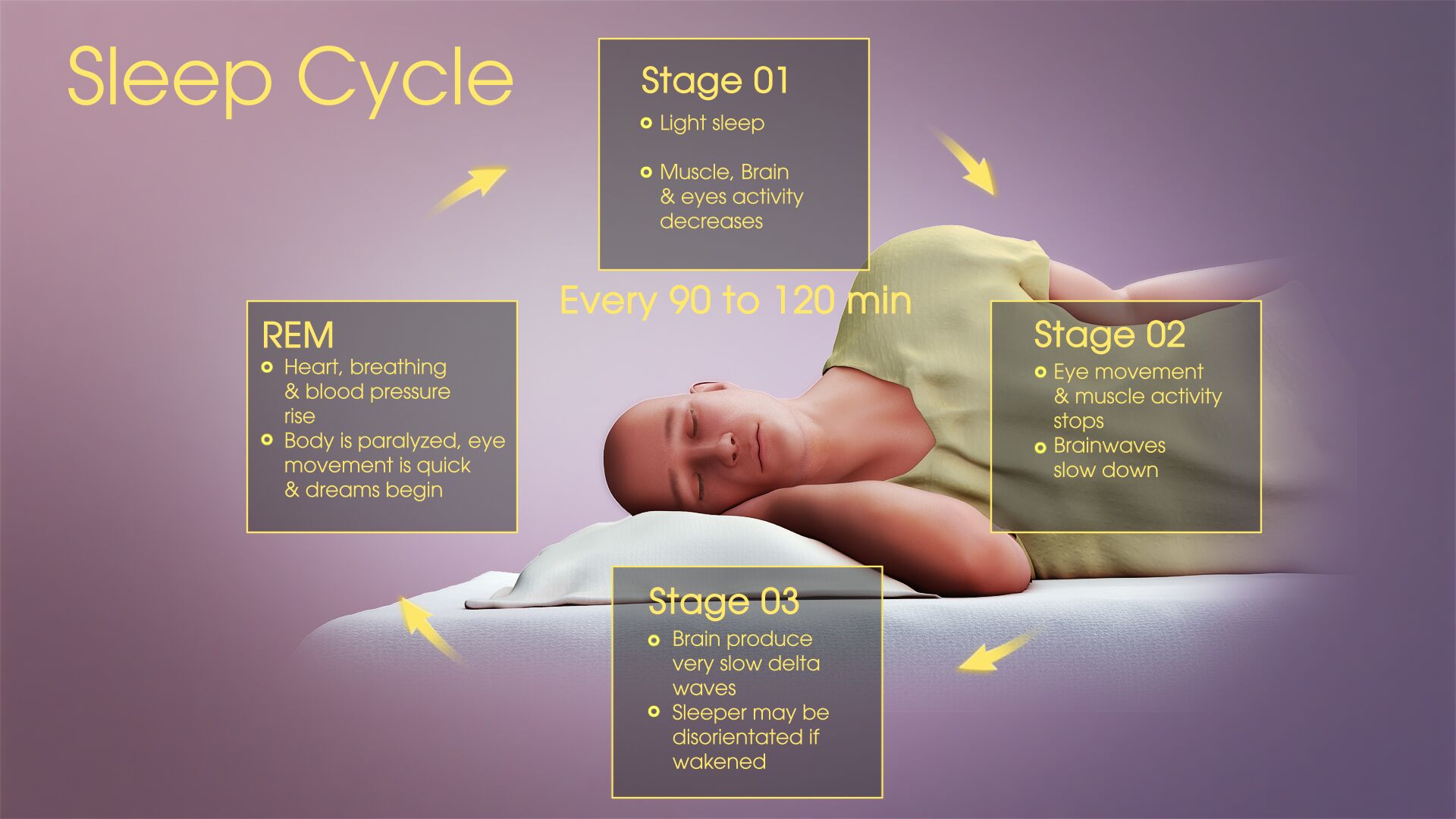
Second, too little rest can elevate blood glucose levels in the body. First, the lack of sleep causes ghrelin hormone levels to increase, increasing your appetite. Two things can happen when you get good rest.

Studies have shown that not sleeping enough can increase cortisol levels and increase anxiety. Lower stress levels: Deep sleep is beneficial for managing stress.ĭeep sleep is valuable because it comes with multiple benefits to your cognitive, emotional, and physical well-being.

It is during REM sleep that we experience faster breathing, rapid eye movements, increased brain activity, physical arousal, and vivid dreams. These cycles will get longer throughout the night, though, with the final one before waking lasting up to an hour. This stage usually starts about 90 minutes after falling asleep, and the first cycle of REM lasts only 10 minutes. Stage 4: The final stage of sleep is rapid eye movement (REM) sleep. It’s when night terrors, sleepwalking, and bedwetting occur. This is the stage when our body repairs and regrows tissue, builds bone and muscle, and strengthens the immune system. This stage of deep sleep lasts about 20 to 40 minutes and makes up 25 percent of your total night’s sleep, and as we get older, less and less. If somebody does wake you up during deep sleep, you’ll probably feel groggy and disoriented for 30 minutes to an hour. This is why deep sleep is also called “slow wave sleep.”ĭuring this stage, you have no eye movement or muscle activity, and it is very hard to wake up during this stage. During this stage, your brain produces delta waves, which are very slow brain waves. This stage of non-REM sleep is what we know of as deep sleep. Stage 3: The third stage of sleep is called N3. Ultimately, you’ll spend about 45 percent of your total sleep in this sleep stage. This stage lasts about 25 minutes in the first cycle of the night and lengthens as you repeat the cycle throughout the night.

In this non-REM stage of sleep, eye movement stops, heart rate begins to slow down, body temperature drops, and brain waves begin to slow. Stage 2: The second stage of sleep is called N2. This stage only lasts about one to five minutes and includes a regular rate of breathing, sometimes a feeling as though you’re falling (perfectly normal), and if you were to get woken up during this stage, you might feel like you haven’t slept at all. This non-REM stage is categorized as light sleep, and it is when you’re just drifting off. Stage 1: The first stage of sleep is called N1. (So, one sleep cycle includes these four stages, totaling up to roughly 90 minutes per sleep cycle.)

The body moves through each of these phases about four to six times per night, each of these sleep cycles lasting about 90 minutes. NREM is further divided into three stages, N1, N2, and N3. There are two broad categories of sleep that we cycle through throughout the night: rapid eye movement (REM) and non-rapid eye movement (NREM) sleep. In order to understand deep sleep, it’s important to know where it falls in relation to the other stages of sleep.


 0 kommentar(er)
0 kommentar(er)
